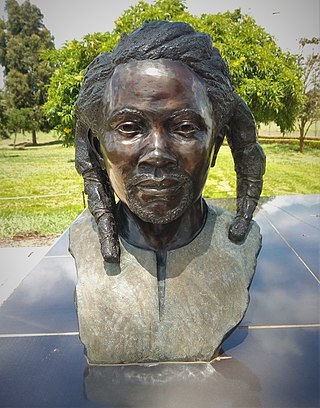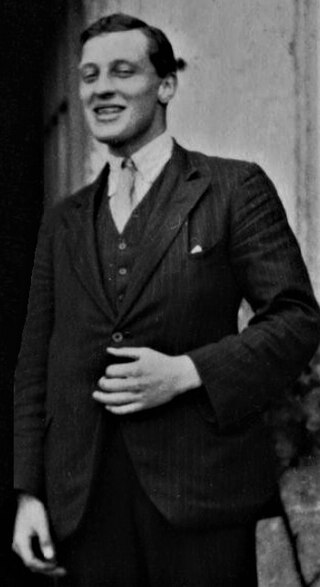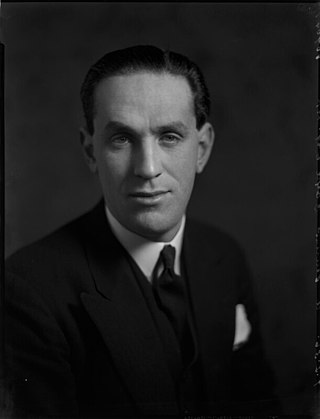Related Research Articles

The Mau Mau rebellion (1952–1960), also known as the Mau Mau uprising, Mau Mau revolt, or Kenya Emergency, was a war in the British Kenya Colony (1920–1963) between the Kenya Land and Freedom Army (KLFA), also known as the Mau Mau, and the British authorities. Dominated by Kikuyu, Meru and Embu fighters, the KLFA also comprised units of Kamba and Maasai who fought against the European colonists in Kenya, the British Army, and the local Kenya Regiment.

Itzhak Avraham ben Zeev Spiegelman, professionally known as Art Spiegelman, is an American cartoonist, editor, and comics advocate best known for his graphic novel Maus. His work as co-editor on the comics magazines Arcade and Raw has been influential, and from 1992 he spent a decade as contributing artist for The New Yorker. He is married to designer and editor Françoise Mouly and is the father of writer Nadja Spiegelman. In September 2022, the National Book Foundation announced that he would receive the Medal for Distinguished Contribution to American Letters.

Maus, often published as Maus: A Survivor's Tale, is a graphic novel by American cartoonist Art Spiegelman, serialized from 1980 to 1991. It depicts Spiegelman interviewing his father about his experiences as a Polish Jew and Holocaust survivor. The work employs postmodern techniques, and represents Jews as mice and other Germans and Poles as cats and pigs respectively. Critics have classified Maus as memoir, biography, history, fiction, autobiography, or a mix of genres. In 1992 it became the first graphic novel to win a Pulitzer Prize.
Jaimini was an ancient Indian scholar who founded the Mīmāṃsā school of Hindu philosophy. He is the son of Parāśara and is considered to be a disciple of sage Vyasa. Traditionally attributed to be the author of the Mimamsa Sutras and the Jaimini Sutras, he is estimated to have lived around 4th to 2nd century BCE. Some scholars place him between 250 BCE and 50 CE. His school is considered non-theistic, but emphasizes ritual parts of the Vedas as essential to dharma. Jaimini is known for his studies of the older Vedic rituals.

Dedan Kimathi Waciuri was the senior military and spiritual leader of the Mau Mau Uprising. Widely regarded as a revolutionary leader, he led the armed military struggle against the British colonial regime in Kenya in the 1950s until his capture in 1956 and execution in 1957. Kimathi is credited with leading efforts to create formal military structures within the Mau Mau, and convening a war council in 1953. He, along with Baimungi M'marete, Musa Mwariama, Kubu Kubu, General China and Muthoni Kirima, was one of the Field Marshals.

Evelyn Baring, 1st Baron Howick of Glendale,, was Governor of Southern Rhodesia from 1942 to 1944, High Commissioner for Southern Africa from 1944 to 1951, and Governor of Kenya from 1952 to 1959. Baring played an integral role in the suppression of the Mau Mau rebellion. Together with Colonial Secretary Alan Lennox-Boyd, Baring played a significant role in the government's efforts to deal with the rebellion, and see Kenya through to independence. Baring was aware of abuses against Mau Mau detainees. He was elevated to being the 1st Baron Howick of Glendale in 1960.
Medical torture describes the involvement of, or sometimes instigation by, medical personnel in acts of torture, either to judge what victims can endure, to apply treatments which will enhance torture, or as torturers in their own right. Medical torture overlaps with medical interrogation if it involves the use of professional medical expertise to facilitate interrogation or corporal punishment, in the conduct of torturous human experimentation or in providing professional medical sanction and approval for the torture of prisoners. Medical torture also covers torturous scientific experimentation upon unwilling human subjects.
This article describes the use of torture since the adoption of the 1948 Universal Declaration of Human Rights (UDHR), which prohibited it. Torture is prohibited by international law and is illegal in most countries. However, it is still used by many governments.

Alan Tindal Lennox-Boyd, 1st Viscount Boyd of Merton, CH, PC, DL, was a British Conservative politician.

Hola, also known as Galole, is a small town in Kenya on the Tana River with a population of 6,932. Hola is the capital of the Tana River County. It is a busy market town and a portal to Garissa County and the former North Eastern Province by local canoe ferry across the Tana River.
The 1959 Hola massacre was a massacre committed by British colonial forces during the Mau Mau Uprising at a colonial detention camp in Hola, Kenya.

Cheng Yi (1033–1107), also known by various other names and romanizations, was a Chinese classicist, essayist, philosopher, and politician of the Song Dynasty. He worked with his older brother Cheng Hao. Like his brother, he was a student of Zhou Dunyi, a friend of Shao Yong, and a nephew of Zhang Zai. The five of them along with Sima Guang are called the Six Great Masters by his follower Zhu Xi. He became a prominent figure in neo-Confucianism, and the philosophy of Cheng Yi, Cheng Hao and Zhu Xi is referred to as the Cheng–Zhu school or the Rationalistic School.
David Steel was a Church of Scotland minister.
The Kapenguria Six – Bildad Kaggia, Kung'u Karumba, Jomo Kenyatta, Fred Kubai, Paul Ngei, and Achieng' Oneko – were six leading Kenyan nationalists who were arrested in 1952, tried at Kapenguria in 1952–53, and imprisoned thereafter in Northern Kenya.
Thomas Muthee is a Kenyan preacher, bishop, and self-professed witch hunter. He became internationally known when in 2008, it was reported that United States vice presidential candidate Sarah Palin had financed his work after seeing a video of his claims of successful use of spiritual mapping to identify and persecute a woman for witchcraft. After seeing the video, Palin invited Muthee to Alaska, where he gave her a blessing when she ran for governor, prior to her vice presidential run. Muthee has spoken to churches in multiple European countries and does work in Africa. He has been described as an apostle in the New Apostolic Reformation movement and a dominionist.

British war crimes are acts committed by the armed forces of the United Kingdom that have violated the laws and customs of war since the Hague Conventions of 1899 and 1907, from the Boer War to the War in Afghanistan (2001–2021). Such acts have included the summary executions of prisoners of war and unarmed shipwreck survivors, the use of excessive force during the interrogation of POWs and enemy combatants, and the use of violence against civilian non-combatants and their property.
The Chuka massacre, which happened in Chuka, Kenya, was perpetrated by members of B Company, 5th Battalion, King's African Rifles (KAR) in June 1953 with 20 unarmed people killed during the Mau Mau uprising.
Operation Anvil was a British military operation during the Mau Mau Uprising where British troops attempted to remove suspected Mau Mau from Nairobi and place them in Langata Camp or reserves. The operation began on 24 April 1954 and took two weeks, at the end of which 20,000 Mau Mau suspects had been taken to Langata, and 30,000 more had been deported to the reserves.
Terence Gavaghan was a British colonial administrator. As a colonial district officer in Kenya, he was responsible for six detention centres in Mwea during the Mau Mau insurrection of the 1950s.
The Kenya Land and Freedom Army (KLFA), also known as the Mau Mau, was a Kenyan Independence Movement which fought against British colonial rule in Kenya during the Mau Mau rebellion from 1952 to 1960. Its membership consisted largely of the Kikuyu people. The KFLA was led by Dedan Kimathi for most of its existence. After four years, British forces managed to destroy the KFLA militarily, and Kimathi was captured and executed in 1957. Though the Mau Mau rebellion was ultimately suppressed, it played a major role in achieving Kenyan independence, which occurred in 1963.
References
- ↑ H. Odera Oruka (1990). Sage Philosophy: Indigenous Thinkers and Modern Debate on African Philosophy. pp. 86–87. ISBN 90-04-09283-8.